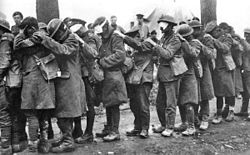This article has multiple issues. Please help improve it or discuss these issues on the talk page . (Learn how and when to remove these messages)
|
| Founded | 1920 |
|---|---|
| Type | Blindness organization |
| 03339912 | |
| Registration no. | 1062354 |
| Focus | Supporting sight impaired people to live independent lives. |
| Location |
|
Area served | Kent, Medway, Bromley, Bexley |
Key people | Eithne Rynne |
| Website | http://www.kab.org.uk |
Formerly called | Kent County Association for the Blind |
Kent Association for the Blind is a registered charity providing rehabilitation services for children and adults with visual impairment to support them and help them live independent lives. Services are provided by six, specialist rehabilitation teams based in offices in Kent, Medway and Bromley. Additional specialist support is provided in Bexley.
